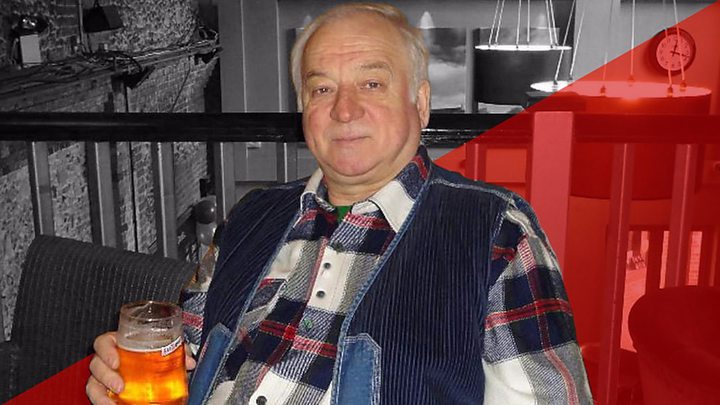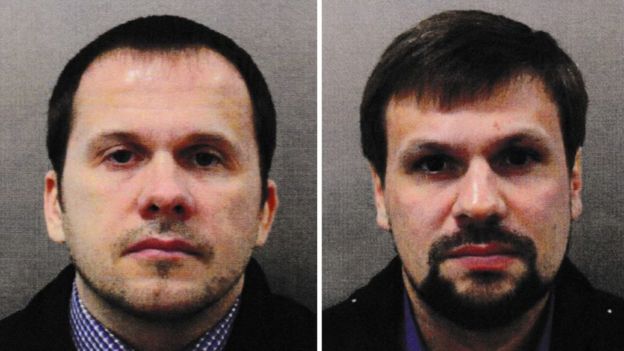On 4 March 2018 emergency services received a phone call from members of the public in Salisbury who had seen an old man and a young woman ill on a bench. It was a call that would set in motion a chain of events leading to a major crisis with Russia.
After the pair were taken to hospital, local police did an online search on the name of the man taken ill.
The result set off alarm bells. He was a former Russian spy.
A call came into the duty officer at MI6 headquarters that Sunday evening.
The realisation that Sergei Skripal – a man who had provided MI6 with secrets from his time in Russian military intelligence – had been targeted sent shock waves through the building, challenging the very core of its work in recruiting agents to work with the organisation.

A few hours later, the next call went to Porton Down, home to Britain’s biological and chemical research establishment.
A rapid-response team was quickly deployed. Samples analysed in labs on-site identified A234, a military-grade nerve agent from the Novichok family developed by the Soviet Union in the Cold War.
The revelation caused shock. Detective work by police would identify two officers from Russian military intelligence as the main suspects and a perfume bottle as the means of delivery of the nerve agent onto Mr Skripal’s front door handle.
A local woman, Dawn Sturgess would die months later when she came into contact with the Novichok after it had apparently been discarded.

Russia denied any role – even putting the two accused men on TV to say they had visited Salisbury simply to see the cathedral spire – but London was convinced it knew who was behind the attack.
When another former Russian intelligence officer, Alexander Litvinenko, was killed in 2006 (that time by radioactive polonium) the response was delayed and perceived as weak.
London was determined to learn its lesson.
An uncertain legacy
Every known Russian intelligence officer operating under diplomatic cover in the UK (apart from the declared liaison officer for each Russian intelligence service) was quickly expelled – 23 in total.
Many other countries then followed suit, with 60 expulsions in the US. It seemed as if the Kremlin was taken by surprise by the strength of the reaction.
But two years on, the legacy of those events looks more uncertain.
British officials believe they did real damage to Russian intelligence operations in the country but that damage is likely to have been short term as new spies were dispatched to replace them and as Russia continues a shift to rely on alternative means of espionage.



